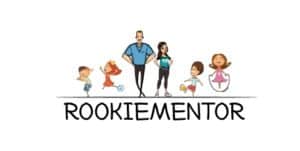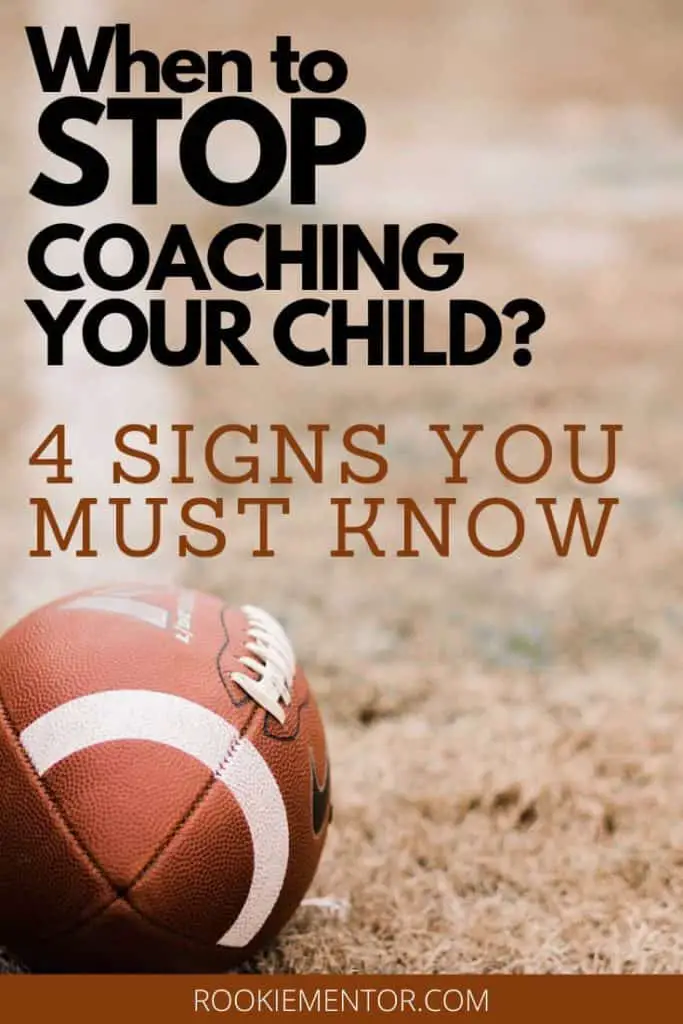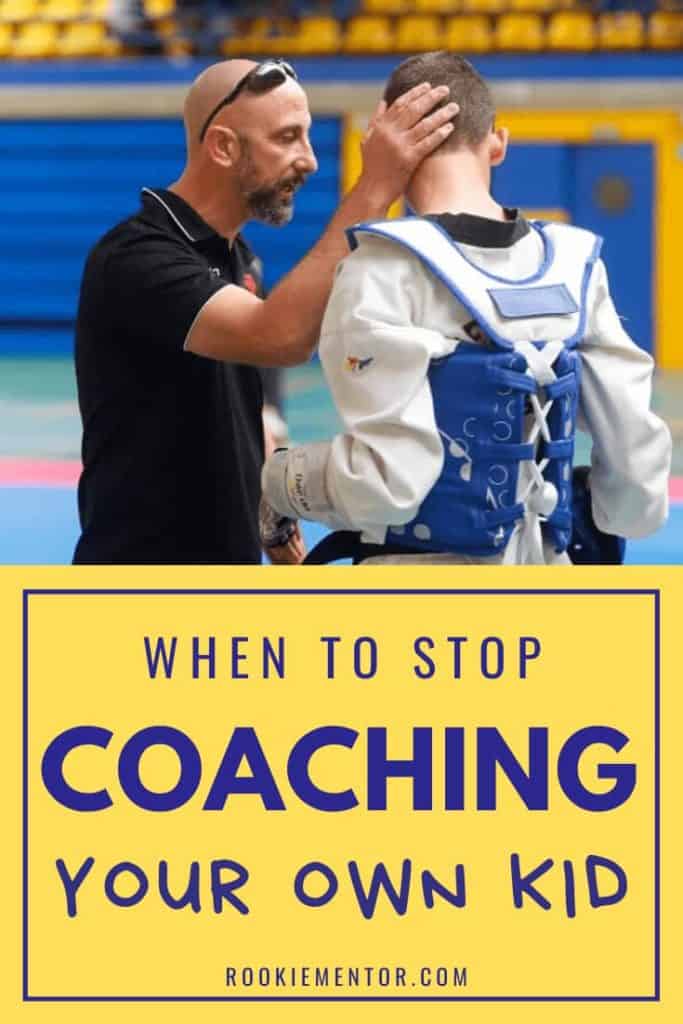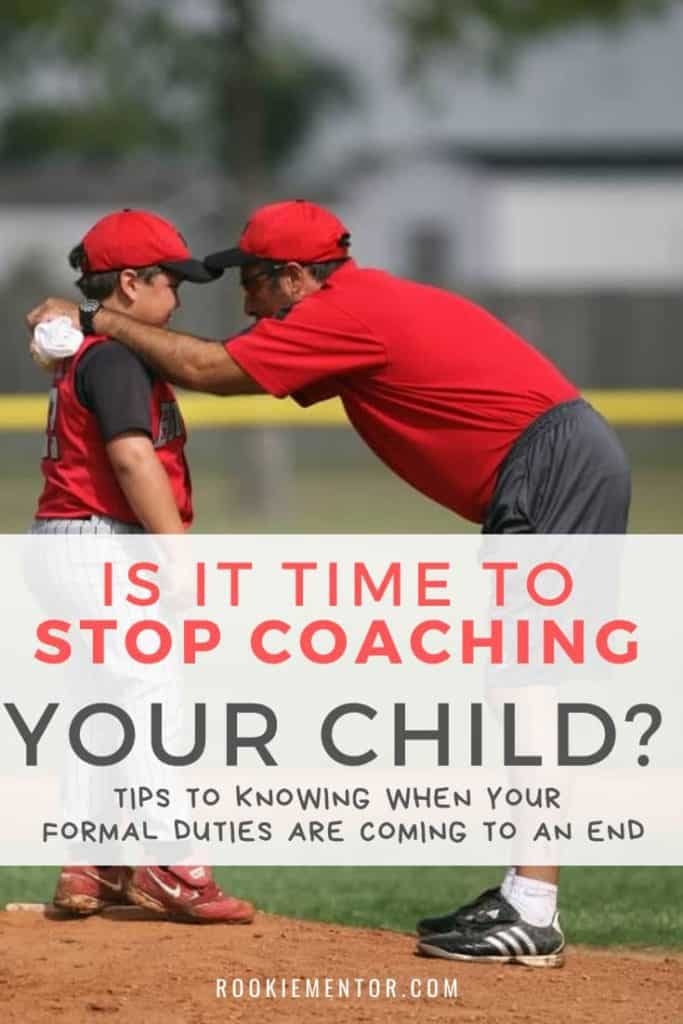Most parent-coach-child relationships have an expiry date. But how do you know when the time is right to stop coaching your child and preserve your bond beyond the playing field?
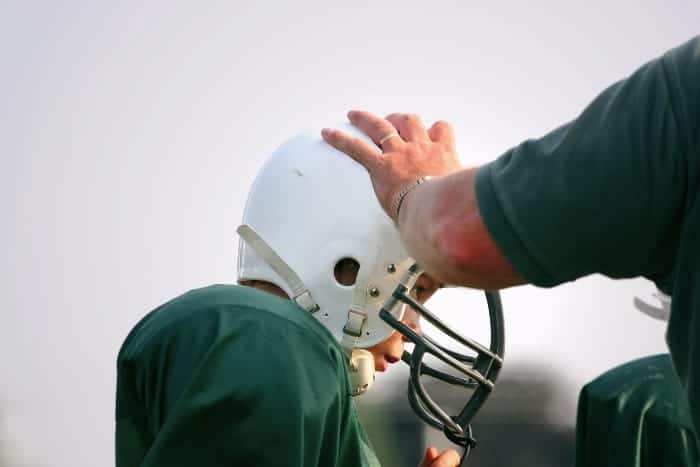
When should you stop coaching your child? There is no specific timeframe to when you should stop coaching your child. However, if your home life is being effected, your child reaches a particular age or you get the “vibe” that you’ve done all you can as a coach, it could be time to consider being their parent and biggest fan.
Asking yourself the honest question of when you should stop coaching your child is by no means a sign of failure or defeat. It’s actually a noble, observant skill to know when it’s time. This post will explore 4 signs to observe which could indicate you should consider hanging up the coaching clipboard and put on your parent hat for good.
1. Homelife Is Starting to Be Disrupted
Is there prolonged silence at the kitchen table after a game and your child refuses to look at you?
Is there silence (or yelling and screaming) in the car on the way home hours after the game because your child is frustrated with your coaching tactics and you’re disappointed with their efforts?
Is your relationship with your spouse/partner and other children being compromised and forcing them to “take sides?”
Conflict can, unfortunately, spill out from the field and into the home often because of the roles of being a parent and coach become blurred and hazy.
Sport promotes passion, enthusiasm and a desire to win. But the pressure of trying to juggle your own child’s development and looking after the rest of your family can rear its ugly head at home, and you may not even realize it.
If you do however sense there is disharmony within your immediate family due to your involvement in coaching your own child, ask yourself the following:
- Are you enabling your child to enjoy the sport they have chosen to play or is your involvement hindering their ability to learn, make new friends and develop not only as an athlete but also a person?
- Are the disagreements and arguments before, after or even during a game really worth it? Sport is supposed to fun.
- What is more important? Maintaining a winning record on the field/court or having a strong relationship with your child at home?
- Can you remember a time, within the last month, when you honestly enjoyed watching your child play and were proud of them, commenting on this to your spouse, partner or other kids?
Be honest with yourself here.
I often write a pro’s and con’s list when faced with a challenging conundrum. If your con’s list heavily outweighs the pro’s to continue coaching, it’s probably time to give it away.
You may still believe you have a lot to give and you probably do.
But have trust in other coaches for the seasons to come and start focusing on being the very best, supportive parent on the sideline, instead of inside the coaches box.
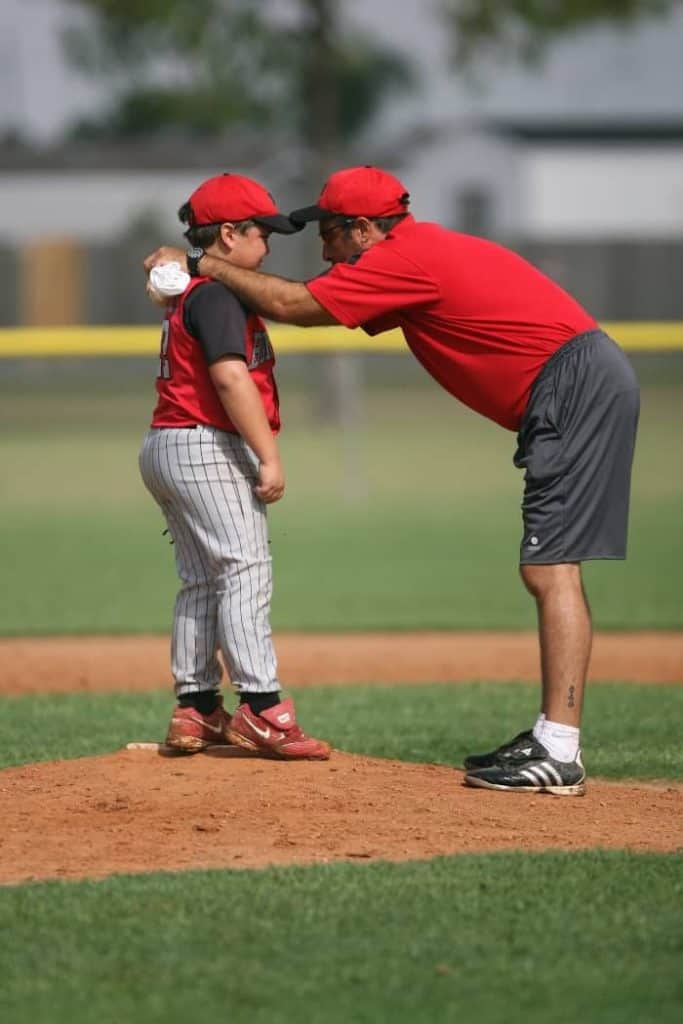
2. Your Childs Age
What is the perfect age to stop coaching your kids?
8th grade? High school? College?
The truth is nobody knows. There is no secret number that “in the know” parent coaches talk about, so I suggest to stop looking for it.
When researching online and listening to youth sports parents talking at practice, there is a popular belief that when your child reaches high school, it’s time to call it quits as a coach.
They believe that it’s at this point in your child’s life that they have learned all the technical, fundamentals of the game from you and it’s time to branch out and learn different, personal and social skills from somebody else.
They say they need to make friends and a name for themselves without being considered the “coaches kid.”
I do tend to believe that no single person can teach another human every aspect of life. This includes even the most respectful, kind, motivating and loving parents.
At some point, we do need to let our kids go from the teams we are coaching and let them experience something new. I know this seems sad, but I think it’s exciting and a time that should be embraced rather than avoided.
You now have the opportunity to be your child’s biggest fan without caring about your coaching record or other kids playing time.
You finally get to experience the sheer joy of seeing your child smile because of the game you taught them to love.
Just because you stop coaching them in 8th grade, high school or even college this doesn’t stop you from being the parent who throws catch in the park and races for fun in the local pool.
Here is a comment I came across online…..
It’s a no win situation when they reach high school if you’re the coach. If they make the team it’s because “mommy” or “daddy” is the coach and if they don’t you have to sit down and have dinner with them that night…
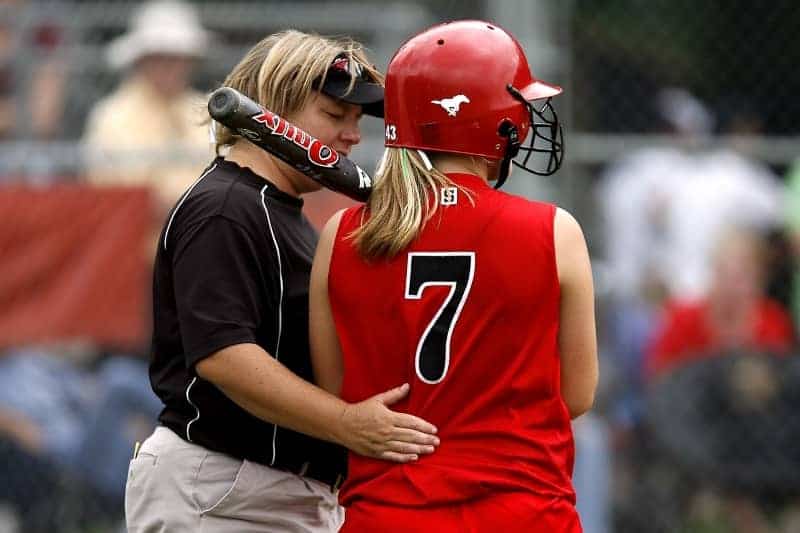
3. Your Child Suggests, Even Non-Verbally, It’s Best You Don’t Coach Them Anymore
If you are starting to get the vibe that you should stop coaching your kid, why don’t you simply ask them?
I know this may seem obvious but kids are generally pretty honest when you ask them a question. They, fortunately for us, haven’t learned the art of being subtle.
“I need you as a dad and a mentor, not a coach”.
(source)
Sit down in a quiet place, not in the car ride home from a game and actually talk to them about being their coach in the present season and into the future.
Discuss why they like you being their coach, as there will be many reasons, but also explore some of the challenges they face being the “coaches kid”.
Look at this situation from the perspective of your child and not from your own.
The decision to coach your child must benefit them and not simply your rank with other parents or your personal ego.
On the other hand, some children may be intimidated by you directly questioning them. They’ll show you in other ways they are not okay with your position as a coach.
Their grades and ability to concentrate may diminish at school, they may become more reserved, afraid to make a mistake and they may even stop making friends, even with new teammates.
I recently read a study looking at Under 12 competitive soccer players who were coached by their fathers.
While the children stated they liked their coach understanding their ability level, being involved in decision making and receiving special attention there was also a few negatives I need to list.
They didn’t appreciate the extra pressure/expectations, conflicts at home, lack of understanding/empathy, unfair behavior and criticism for mistakes and being negatively impacted socially.
Listen to what your child is not saying and the question to either coach or not to coach your child will become clear.

4. Other Parents, Kids and the Sports Community Think You’re Favoring Your Child
Is this a reason to give up coaching?
While I don’t typically care what others think, it’s a good time to sit back and reflect on why people are saying this.
Are you giving your child more playing time than the rest of the team? If so, why? Is your son or daughter the best on the team and you simply want to win? Or, do you want to avoid arguments and fighting at home after the game so you’ve opted for more court time?
The feeling that other kids, parents and the community are not happy with your performance isn’t fun and I’m sure it’s not why you signed up to the youth sports coaching position.
So what can you do? Do you quit coaching your kid just because a bunch of other people, directly and indirectly, said so? Not exactly.
But I would start analyzing my behavior as the coach. I find talking to an honest person, such as your spouse or even your child will reveal things you could not have imagined.
They will point out elements such as court time, extra training and your general demeanor at a game that could be putting people off.
With this honest information and self-reflection in hand, you have a choice.
To either modify how you coach allowing for equal opportunity and placing fun back into the sport, if you think there is a problem and you want it bad enough. Or, you may come to the decision that you cannot separate your position as a coach from being a parent. And that’s okay.
Wearing duel hats is VERY hard to do well and why most parents opt not to do it. You haven’t failed. Accepting that it’s time to become your child’s biggest fan and not their coach can open doors in your relationship with your child which were probably never possible if you stuck to the role as coach.

Summary: When to Stop Coaching Your Child?
Coaching your child allows for enormous positive social interactions in the home, the opportunity to teach skills and values, all while taking pride in your child’s achievements.
And while formally choosing to stop coaching your child will almost certainly come to an end at some point in life, it doesn’t have to be a bitter conclusion. Observe, ask and question yourself and your child if your position as coach should continue into the future and you’ll find you can come to the right decision.
Are you coaching your child? How old are they? Are you getting the vibe that time is almost up?
Cheers,
Emma
